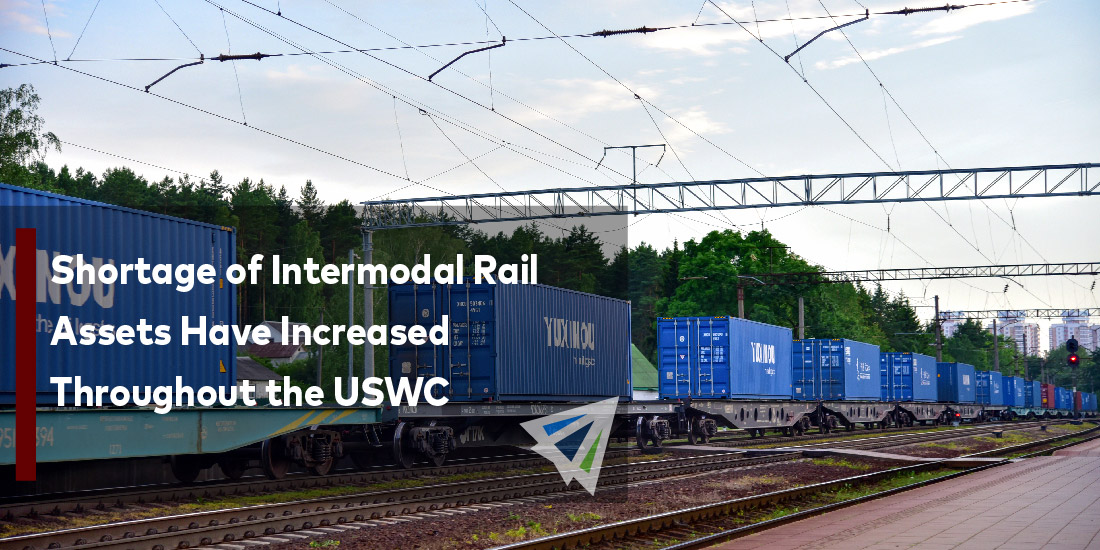Shortage of Intermodal Rail Assets Have Increased Throughout the USWC
Many are urging Class I railroads to increase their deployment of railcars and locomotive power throughout Los Angeles/Long Beach, Oakland, and Seattle/Tacoma as the lack of rail equipment has become a predicament at U.S. West Coast (USWC) ports.
Key Factors That Have Led to This
Inland point intermodal (IPI) bookings have been rapidly increasing after a slight break during Lunar New Year back in February, railroads are not taking railcars out of storage fast enough to meet this new demand, and rail ramps in the interior U.S. have come congested again – all are key factors that have led to these current conditions, the Journal of Commerce reports.
With recent increases in intermodal bookings throughout the USWC, railroads are stumbling to have enough equipment to handle such increases. Recently on March 29th, the Long Beach Container Terminal (LBCT) had 8,000 rail containers at its terminal, compared to their normal 1,000-1,500, the JOC reported. The LBCT said that because of the backlog of rail containers (which leaves the terminal nowhere to discharge important containers from vessels), it had to cut back on longshore labor gangs that are prepared to work.
These issues are not just happening in LA/LB but several ports throughout the USWC, including Oakland and Seattle/Tacoma.
What You Should Know
Reports are showing the average rail container dwell times in LA/LB have increased to 5.2 days in February from 3.5 days in January. The JOC notes that the average dwell time should be three days or less. In addition, Noel Hacegaba, a deputy executive director and COO at the Port of Long Beach, says the dwell times have gotten even worse in March, approaching seven days. Some experts say terminal operators throughout the USWC have drawn back labor requests as congestion continues to mount at the terminals.
Lack of transparency and information from the railroads has been expressed by terminal operators. As reports say both Union Pacific and BNSF are working with the ports, terminal operators, ocean carriers, and shippers to coordinate efforts to handle the potential of larger inland point intermodal volumes in the next few months.
If you would like more information regarding this topic, contact our team at InterlogUSA and we will be happy to assist you on any questions or comments you may have! In addition, we have our weekly market updates that can provide you with relevant freight news, updates, developments across the industry, and more.
